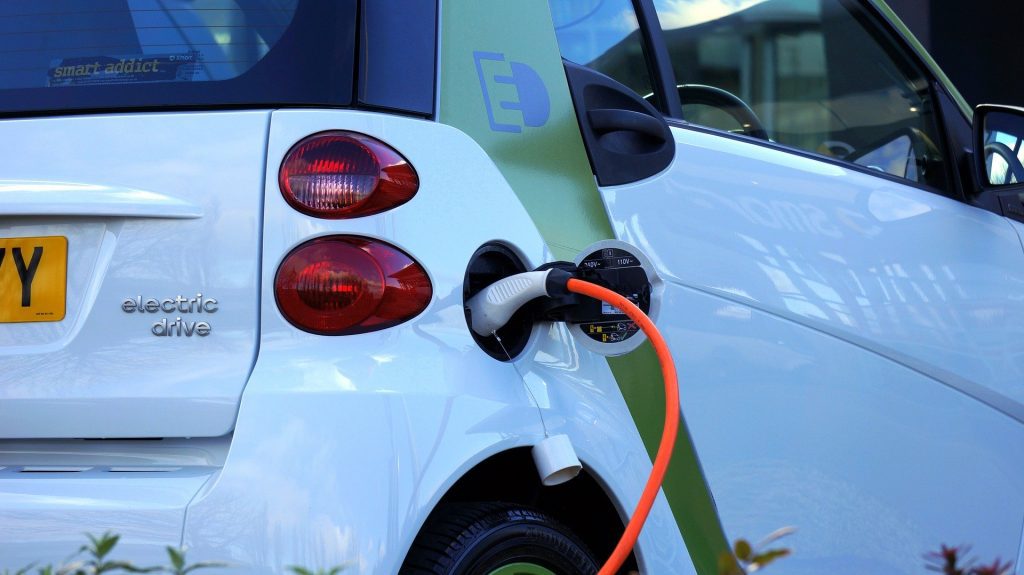In this interview on The Logros Show – in association with The Greater Manchester Chamber of Commerce – Lee Dinsdale talks to Greg Fairbotham – CEO of Zoom – who encourage people into getting into electric vehicles and help them use them.
Interview with Greg Fairbotham of Zoom – The Real Sound of the City.
Lee: Good afternoon everybody. My name is Lee and this is Unity Radio – The Real Sound of the City and we are broadcasting live from The Landing here in Media City UK on 92.8 FM DAB and on line at Unity Radio.FM. In the studio today we have Greg Fairbotham, hi Greg.
Greg: Hi Lee. I am Greg Fairbotham and am Zoom CEO and Founder. I am 31 years old and my background is in energy and Zoom is all around getting people into electric vehicles and looking at how we transition to the future of electric vehicles.
Lee: What does Zoom do?
Switching to Electric Cars.
Greg: We are helping people transition to electric vehicles. It’s very relevant at the moment in terms of a topic. Zooms mission ultimately is not only to help people transition to those cars but actually look at how we use them. Cars sit idle statistically 95% of the time. So how can you do more with them but do more with better vehicles i.e. electric vehicles?
Lee: Tell us a little bit about the mission statement within the company.
Greg: For everyone listening my background is in oil and gas. I joined a big oil and gas company straight out of university and Zoom is part of my mission passion to ultimately have an impact on the future i.e. move into more of a low carbon economy and mobility being part of that. Part of my mission and Zooms mission is to address the issues that we face around carbon emissions and do it with better vehicles and help transition people to those vehicles.
Lee: What are some of the services that you offer?
Greg: We do three things really. The first is we help connect people to the services they need when they get an electric vehicle. That is things around public charging, home charging units, green and electric vehicle tariffs, so we think about that person’s journey in an electric vehicle. The second thing is insurance and we have launched a product about three months ago in that space. The final bit is a platform that does more with electric vehicles so there are elements of it you can almost call an air b & b but for electric vehicles. We are also working with businesses to do more with their vehicles increasing their use, rather than having more vehicles on the road.
Lee: I was reading a report that 20/20 is set to be the year of electric vehicles. How do you see peoples purchasing habits, or use of or rent of changing moving into electric vehicles?
Greg: There are two key things really. First they say it is the year of electric vehicles mainly because there are some significant tax changes coming this year, boring stuff unless you are buying one. Basically it means it becomes an economic no brainer to have an electric vehicle especially if you are an employee and there is a car scheme. The second reason really is the number of electric vehicles and the range of products is significantly increasing this year so I think that is why they call it the year of the electric vehicle.
Lee: In terms of Zoom what impact are you aiming to have?
Greg: Yes that is the big question. We did market research because we knew people were struggling getting into these cars and understanding them so a lot of it is education based. We help people get into them and help set them up with the services that they need when they have them and then, how do you do more? That’s where the platform comes in to say if your car is sat idle 95% of the time why not share in the community where you can generate revenue from and save the planet at the same time.
Lee: Why do you think people are switching over?
Understanding Consumer & Market Trends
Greg: A few different reasons, first in terms of the cost. The cost of electric vehicles is coming down and to run an electrical vehicle is minimal cost, especially if you charge that car at home. I think consumer behaviours are changing and we are all being influenced by this amazing young generation coming through who are very passionate about their environment and air quality and all the things we’ve seen over the last six months. Consumer behaviour is certainly driving electric vehicles as an option.
Lee: We heard before how you had been working for an energy company. At what point did you decide, I’m not doing that I’m going to do this instead?
Greg: It was mid-2017, I was in the Middle East at the time and electric vehicles had kind of become my passion. I was helping a start up here in the UK around projects and I moved back to the UK and fundamentally that company wasn’t innovative enough for me in its electric vehicle space. It was a combination of wanting to do what I was passionate about and also wanting to achieve in my career and do something that I absolutely loved and make a difference while I did it. That was the core foundation of leaving that role.
It was a combination of wanting to do what I was passionate about and also wanting to achieve in my career and do something that I absolutely loved and make a difference while I did it.
Lee: Was there anything that triggered it? People often remain in a job because it’s familiar and secure.
Greg: The security never really played a part for me because I had two things in my mind. I knew what I wanted for myself and what I wanted from myself. Fundamentally what that meant for me was in my career I didn’t want to look back and say actually I stayed in that job for security. I wanted to challenge myself and go out with those boundaries because at the end of the day you are always going to look back and say at the very least you gave it an absolute shot.
Lee: That is a great inspiration to everybody listening. So what would you say to people thinking about doing the same Greg?
Greg: The key for me that I could pass on is know what you want for yourself i.e. in terms of your career and then know what you want from yourself. In the case of setting up a business you know what you want to do but you’ve got to be utterly committed to going out and getting it because it’s hard. So that from yourself is key, if you are not willing to go to the ends of the earth to get it then don’t do it! If you know what you want for yourself and from yourself it makes the decision a lot easier.
Lee: What are you most proud of so far?
Greg: Two things. The first was to have originally taken the leap because it is a leap going from that environment into business. Pushing those boundaries of yourself and ultimately know what you are able to achieve. Second one is the team that I have around me. I’m very particular in the people that I have around me, they have to have the same mission and vision.
The Benefits of Electric Vehicles
Lee: Let’s talk about the benefits of electric vehicles.
Greg: Where do I start! Firstly zero tailpipe emissions. Not completely zero in terms of the electricity that is in there and how that is generated, but on the road zero tailpipe emissions. Statistically safer and they have regenerative brakes so the psychology of driving is slightly different because like formula one technology, as you roll the motor regenerates electricity and puts it back into the battery and that’s a cool feature. In terms of are they faster, an electric vehicle to its comparable internal combustion engine i.e. diesel, petrol, is much quicker because it’s immediate torque. The fastest road car in the world at the moment is a Tesla P100D. A comparable car would be a Bugatti Chiron which is significantly more expensive.
Lee: What are some of the myths about electric cars that would stop people from buying them?
Greg: The first one is range anxiety – am I going to get stranded because of the battery? The vehicles coming out are 200 plus miles. The average commute that someone does to work is between 25 and 35 miles so you could charge that car once and do your weekly journey. That’s one of the myths. The other is that they are slower which isn’t the case. Other myths that you’ll get stranded on a motorway somewhere because there is not enough charging facilities. There are significant numbers of chargers nationwide and statistically 95% of all charging is done at home. If you can imagine arriving home, you plug your car in overnight and it charges when electricity is at the cheapest rate, so it saves you money for starters. It’s very much plug and play.
Lee: What about in terms of the costs? What are the comparatives?
Greg: It’s fair to say up until very recently electric vehicles have been more expensive. That is coming down significantly. In this year you will see a lot more vehicles on the road that are priced competitive to normal petrol and diesel cars. As I alluded to before when you have got significant tax changes coming it makes owning them a lot more of a no brainer this year. Hence why you were saying the year 20/20 is the year of the electric vehicle.
Lee: What about styles of cars? What kind of models and makes are coming out now, what is the audience?
Greg: A variety. You have your top end cars like Jaguar I-Pace, Audi e-tron, Teslas. I drive a first generation Renault Zoe, you have the new version of that coming out and there is a lot more around that small car price point that is coming out this year.
Lee: Tell us about the acceleration please.
Greg: They are a lot quicker. When you think about electricity it provides immediate torque so as soon as you put your foot down in a normal car there is that couple of seconds where something doesn’t happen. In an electric vehicle that is not the case, it’s just immediate. If you went in my Renault Zoe you would be surprised, let’s put it that way.
Lee: On the other side let’s talk about the emissions. What is the science of carbon emissions?
Greg: Having a background in energy I always say that if everyone in the UK had an electric vehicle, you have still got a problem. The problem is how do you fuel that car because if you are still burning oil and gas to provide the electricity, you are not really providing the solution. The reason that electric vehicles are so important is because of how we use cars and we rely on them so much. An electric vehicle has zero tailpipe emissions which means when it’s on the road it’s pretty much close to zero in terms of what it emits against how do you generate that electricity? Hence why there is so much emphasis on renewable energy and using renewables to power electric vehicles.
Lee: Earlier you told us how you were working for a company and you decided to leave and follow your passion to get into electric vehicles. Tell us the practicalities of that move and setting up a business. What would you say are some of the top tips that you have benefited from?
Greg: Have great clarity in terms of what it is that you want to achieve and be adaptable. You always have a vision but it’s never a straight road. There is a manner of pitfalls, a manner of corners that you need to turn. Be adaptable to those challenges and just view them as challenges because it happens to everyone who sets up a business. Overcome them, go over them and move on – it happens.
Have great clarity in terms of what it is that you want to achieve and be adaptable. You always have a vision but it’s never a straight road.
Lee: What are the main challenges that you’ve noticed when you look back, and that you have faced and overcome?
Greg: I think one of the key challenges is not getting absorbed in the noise so, especially in electric vehicles space there is so much going on, so much around charging points and all of the things that we have discussed around climate change. There is a lot of opportunities that come through that and there is a lot of things that aren’t quite clear on what your path is, so you need to cut through that to focus on what is really important. That’s something that I still face today and perhaps even struggle with today.
Achieving Excellence
Lee: Okay we are going to wrap up the show with the question about achieving excellence. So Greg over to you in terms of your work and your individual life, how do you achieve excellence?
Greg: I think the most important thing from my perspective is that firstly excellence is very personal. There is no point in me comparing myself to someone else. I think it is understanding your capacity as an individual so for me the key thing is perseverance. Anyone can deal with things when things are going well but how do you deal with things when they are not going so well. How do you overcome them and address them? What is your mind set to addressing them? I think that’s the first one. Being dedicated to what you do so again, it’s weekends, it’s evenings, it’s blood sweat and tears as we all will know. I think the third thing comes back to being passionate because you are willing to do the first two if you are passionate about what you do and what you believe in. For anyone listening if you are dedicated and are willing to persevere and are passionate you will be successful.
Lee: So dedication, perseverance and being passionate, great traits. What is your main mission for the rest of the year and what are you looking to achieve?
Greg: This year we are looking to work with some very big auto dealer businesses getting their electric stock utilized more and building that mobility as a service platform and basically being the go to place for electric vehicle services.
Lee: Where can people find you?
Greg: The website is www.zoom-ev.com. People can find me on Linkedin, I’m fairly approachable, they are the best places to find us.
Lee: Okay great, thank you very much for coming in.
Article Transcription by Terry Capostagno
GET IN TOUCH
Take your first steps to Achieving Excellence with Logros. Call or email us for more details.
Complete and we will keep you updated with the latest edition of the “The Logros”.
It is not a question of what are you going to do just simply who do you want to be
Lee Dinsdale




